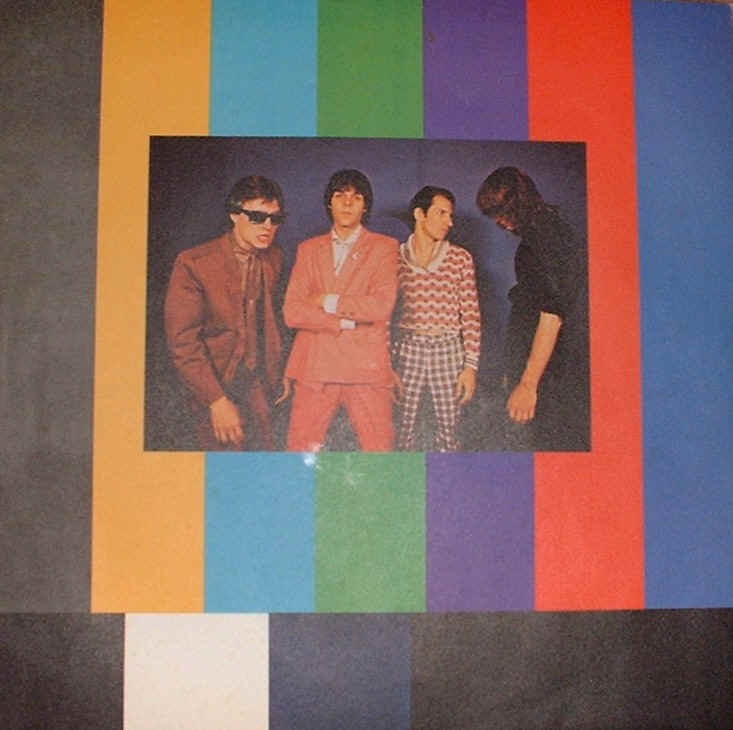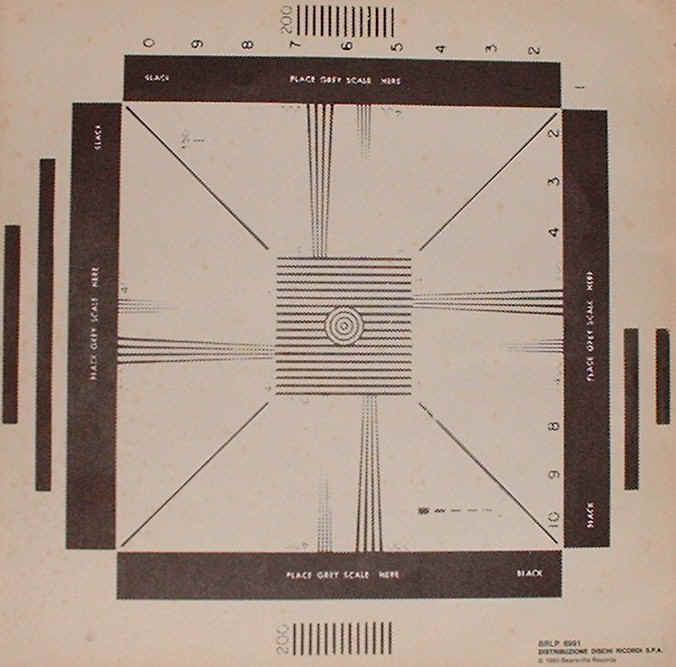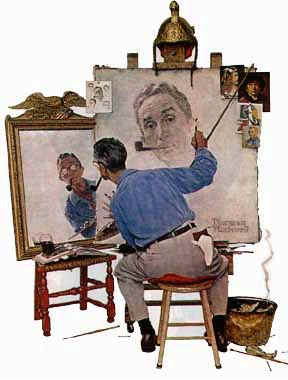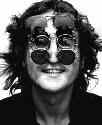.

|
Mark
Chapman suffered delusions from his childhood, and in his early teens, he heard voices
that he attributed to "Little People" who lived in the walls of his bedroom.
Later in life, his
disturbed mental state led him to attempt suicide, and by early 1980, he was receiving
psychiatric counselling for his paranoid schizophrenia.
As is typical with
paranoid schizophrenics, Chapman became convinced that he was able to perceive and
receive signs and signals and messages that are hidden from the rest of us. |
|
|
Every
thing around him could take on a special significance; every word of every song was
speaking to him; images on television were aimed at him; the text of a book had been
written especially for him; a painting could be sending him a secret, coded message.
And to the paranoid
schizophrenic, these signals must be responded to. Such individuals see themselves as a
champion on a quest. They can see themselves as a Saviour, someone who has been given
a special signal and a special mission.
Mark Chapman saw
signs and signals and synchronicities at every turn - he heard the signs in the lyrics he
listened to, saw signals in the album covers, and on tv, in the paintings he collected,
and in the books he read. |
On Todd Rundgren's
"Adventures In Utopia" album, he listened to high-pitched coded signals and was
fascinated by the album's inner sleeve, which he saw as a television "testcard",
designed to help fine tune reception of his special signals.


Mark Chapman began
collecting particular works of art during 1979 and 1980, because in them, he recognised
the signs and signals of narcissism and split personality that he had been searching for,
and they gave him confirmation that he had been chosen to perform this special mission.

The idea of a split
personality was reflected in Todd Rundgren's lyrics and album covers, like "A
Wizard/A True Star", and later, by Norman Rockwell's painting "Triple Self
Portrait" which introduced the idea of a three-way split: Lennon, Chapman and
Holden Caulfield.
  
Mark Chapman felt
he was receiving special broadcast signals telling him to read Salinger's novel "The Catcher In The Rye" . With each page
read, he felt that he was becoming Holden Caulfield, the "Catcher", whose role
was to protect little children from harm.
When the signals
first pointed to Lennon as the target, Mark Chapman researched what the rock star had been
doing in the last few years. With rising anger, he read about Lennon's luxurious and
reclusive lifestyle and phoney posturing in Anthony Fawcett's book One Day At A Time . The
book gave him all the confirmation he needed - Lennon was a big phoney and deserved to
die.
But as he listened
to Lennon's songs on the "Double Fantasy" album in October 1980, it seemed
that Lennon was posing as the new "Catcher" - Mark reacted angrily: he was the
real Catcher and Lennon was the impostor.
Chapman's disturbed
mental state meant that he was confused about his own identity, at times he felt he was
John Lennon, at times Holden Caulfield, at times Mark Chapman.
By early 1980,
Chapman had come to regard Lennon and himself as a kind of twinned personality or
doppelganger. (The "doppelganger": two personalities sharing the same time and
space, and one has to cancel out the other. Some see the doppelganger as an expression of
the ideal self in conflict with the actual self - perhaps this was the real conflict in
Mark Chapman. There has always been a question mark over whether what he did was murder or
a kind of surrogate suicide.)
And by 1980, there
was a further complication - there was now a 3 way split in his personality: he saw
himself as Mark Chapman, John Lennon and Holden Caulfield. He signed off from his job in
Hawaii as "John Lennon" and made it his mission to eliminate this other side of
himself, so he could become Holden Caulfield.
To Chapman, the
connection with "The Catcher In The Rye" was overwhelmingly clear.
The one time that
Chapman really felt good about himself was when he worked in Fort Chaffee camp for
Vietnamese refugee children. He was like a Pied Piper to the children: playing his guitar,
singing songs for them. They loved him and followed him around the camp. It was almost the
only thing in his life he felt a sense of pride about, and he looked back on those times
and longed to re-establish himself as some kind of protector of children, some kind of
Catcher In The Rye, a book he remembered from High School, and which he now read and
re-read.
Chapman had now come
to see himself as a new Catcher In The Rye, protecting the children, keeping them away
from the dangerous evils of the world.
But now, here was
Lennon singing as if he was the new protector of children.
It was all coming
together, and all he had to do was follow the signals.
|
|
|